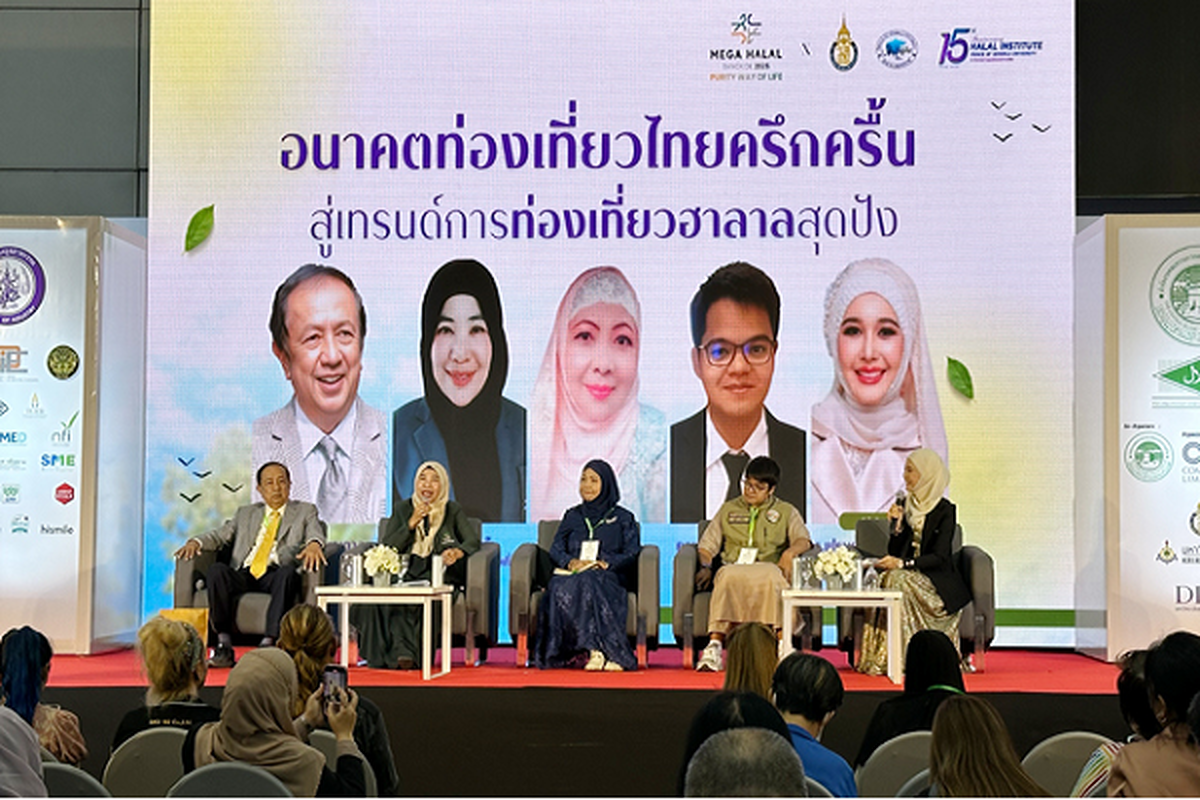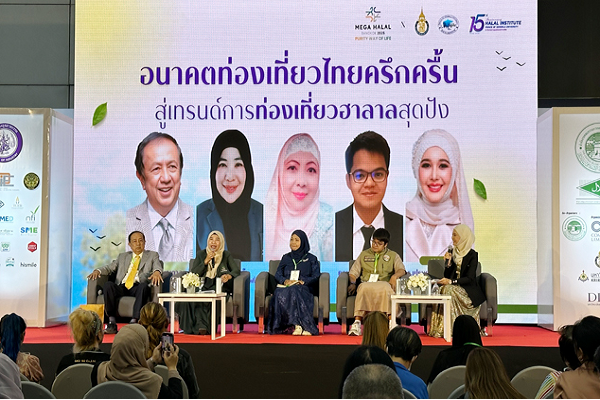Thai Operators Eying Muslim Tourists Urged to Seek Advice from Halal Organizations


These include efforts from catering to daily rituals, to authentic halal certification and untapped source markets.
“Today, it’s no longer just Muslims promoting to Muslims. Even non-Muslim business owners are asking us how to welcome halal guests,” shared Aida Oujah, president of the Thai-ASEAN Halal Tourism Trade Association (TAHTA), who has been promoting Muslim-friendly travel routes in Thailand for almost 30 years.
When it comes to welcoming Muslim tourists, it is the small things that matter, such as bidets in bathrooms, prayer signage, same-gender massage therapists, and so on.
“The bidet is important. If there’s no water in the bathroom, it’s a big issue, especially for Muslim women. At the same time, Muslim travelers mostly want the same itineraries as other tourists. The religious requirements create only about 30 per cent differences in the program,” Aida stressed.
Aida also highlighted that religious and cultural respect often intersect with iconic Thai tourism sites, noting that Muslim travelers frequently express disappointment when landmarks like Wat Arun or Wat Chalong in Phuket are not included in their itineraries, as many feel their visit to Thailand is incomplete without them.
Aida encouraged local operators interested in welcoming Muslim tourists to seek guidance from halal organizations such as the Islamic Committee, the Halal Institute, or TAHTA.
“Phone the contacts; approach the organizations. Don’t wait. Participate in trade shows, fam trips, and foreign buyer inspections,” she urged.
Session moderator Premrapee Punwangdeeyukul, factory manager at SPC Factory All Supply, shared: “Halal is an opportunity, not a limitation. Muslim-friendly doesn’t mean changing everything – just paying attention to the details that matter.”
Dumrong Poottan, advisor to the Speaker of the National Assembly, stressed proper certification, noting that only institutions like the Halal Science Center at Chulalongkorn University or the Central Islamic Council of Thailand can formally certify Halal.
Read More:
“Others may promote or market halal, but legal authority matters when it comes to the certification,” he underscored.
“Muslims talk among themselves and know when something isn’t truly halal – even if the vendor wears a hijab. Also, travelers don’t look for the owner’s name Fatimah or Mohammad – they look for the halal symbol,” advised Aida.
Travel blogger Sakarin Sadlah, founder of the Lamard tang tin (Praying in a Foreign Land) Facebook page, warned of fake halal labels.
“The biggest issue we face is opportunistic behavior – stickers with no certification. That’s not just misleading; it’s a violation of religious trust. Thailand needs laws to stop this,” he opined.
While Thailand has a strong Muslim-friendly foundation, and halal snacks available at chains like Foodland and 7-Eleven, Sakarin added that having a local halal app – like Halal Navi in Japan, for checking certifications – would be a game-changer.
Dumrong meanwhile urged stakeholders to look beyond traditional source markets.
“India is now the most populous country, with a sizable Muslim population – in fact, its third wealthiest person is Muslim. We only need to capture a portion of this niche but high-value segment, but many of them don’t know that Thailand has halal-friendly travel options because our dominant image (in India) is nightlife and entertainment. That has to change,” he advised.
Kusuma Kinglek, CEO of Aonang Princeville Villa Resort & Spa, noted that halal tourism merges seamlessly with other broader wellness trends.
“Thailand already has the food and culture. We just need to adapt our kitchens and evolve our service standards to conform to halal wellness. The new tourism S-curve of clean living is a mega trend. Halal fits naturally into that,” she commented.
Aida concluded with a call for leadership, urging the Thai government to make a clear statement of readiness to welcome halal tourists. She noted that Malaysia, with a population that is 70 to 80 per cent Muslim, is emerging as a major source market alongside China. To capture this growing segment, she stressed, Thailand “must be prepared”.
Source: ttgasia.com



